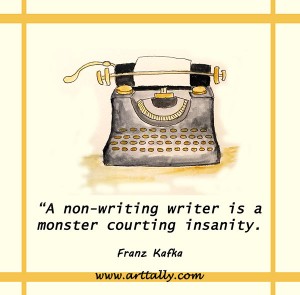Where do you get your ideas?
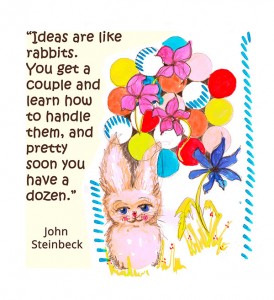 One of the questions people often ask authors is, 'where do you get your ideas?'
One of the questions people often ask authors is, 'where do you get your ideas?'
This was something that used to trouble me. A lot. I worried that I didn't have any ideas. Then before I knew it my problem was not a lack of ideas, but in fact, too many ideas. So many ideas that it is hard to know which idea to focus on and hard to discern a good idea from a bad one. In many ways it feels very much like the same problem.
I think it is because ideas come from the wild and free part of us that the rational, critical self fears so much. As children we spend much more time in that wild free place where ideas abound, all ideas are good and nearly everything seems like fun. We have to learn to tap in to that child like part of ourselves again to find those ideas. When we do they multiply like John Steinbeck promises.
"Ideas are like rabbits. You get a couple and learn how to handle them, and pretty soon you have a dozen." John Steinbeck
Armed with too many ideas, the only way forward is to remain in that same child like state of creative abundance. Free of judgement, open to exploration, and holding off that rational, critical self for long enough to let the best ideas develop enough to reveal themselves.
The importance of books for children
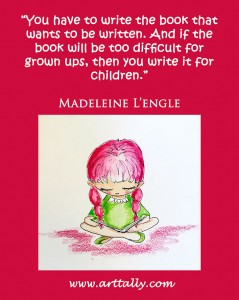 I have always had a deep seated reverence for children's literature. The books that have made the biggest impact on me have always been books for children. I think writing for children is harder than writing for adults. Perhaps that is the way it should be. Really good children's stories convey complex ideas and themes. You know you have fully understood a big important idea when you can explain it simply to a child. If you can do that with humour, with a sense of playfulness and joy, then you are a children's writer.
I have always had a deep seated reverence for children's literature. The books that have made the biggest impact on me have always been books for children. I think writing for children is harder than writing for adults. Perhaps that is the way it should be. Really good children's stories convey complex ideas and themes. You know you have fully understood a big important idea when you can explain it simply to a child. If you can do that with humour, with a sense of playfulness and joy, then you are a children's writer.
"You have to write the book that wants to be written. And if that book will be too difficult for grown ups, then you write it for children." Madeleine L'Engle
Intuitive painting, intuitive writing - lessons in surrendering
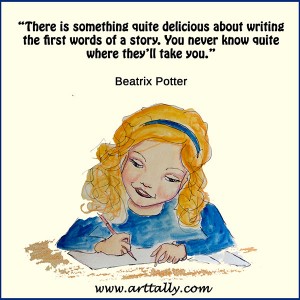 There is something utterly delightful about the idea that you don't have to know exactly where you are going when you start a creative project. The important thing is just to start and trust in the creative process to get you where you need to be. I suppose it is a lesson in surrendering.
There is something utterly delightful about the idea that you don't have to know exactly where you are going when you start a creative project. The important thing is just to start and trust in the creative process to get you where you need to be. I suppose it is a lesson in surrendering.
I'm not sure I realised that you could simply begin a story and let it lead where it may. I did learn that you can paint this way - any one who has had a go at intuitive painting will know exactly what I am talking about.
If you haven't you might want to check out two of my favourite teachers of intuitive painting, Alena Hennessy and Flora Bowley. Even if you don't fancy painting yourself it is a fascinating thing to watch Flora Bowley's paintings emerge - you can see her in action here. And she explains her whole process in her book Brave Intuitive Painting. Love it.
When the going gets tough
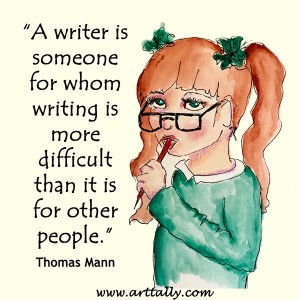 We are into the second half of the NaNoWriMo Challenge already. Hard to believe there are less days remaining than we have already done. Especially when your word count has not yet made it to the half way mark! Uh oh... hope I can do it.
We are into the second half of the NaNoWriMo Challenge already. Hard to believe there are less days remaining than we have already done. Especially when your word count has not yet made it to the half way mark! Uh oh... hope I can do it.
In the meantime I console myself with this thought...
"A writer is someone for whom writing is more difficult than it is for other people." Thomas Mann
If you think you might be a writer heed this warning
If you suspect that you might be a writer, then there is one thing you must do.
WRITE.
Grab a notepad, a laptop or the back of that shopping list stuffed down the bottom of your handbag. Unless she is given a voice that frustrated writer trapped inside you will drive you (and everyone around you) crazy.
Figure out what is stopping you and find a way past it.
Heed this warning from Frank Kafka:
"A non-writing writer is a monster courting insanity."
The best way to learn to write is to write
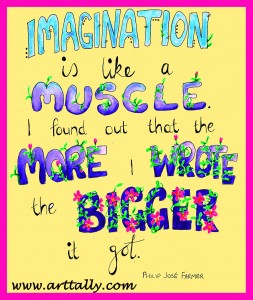 I have come to the conclusion that writing, like a lot of things, is something you really have to learn by doing. In the beginning it is frustrating. Progress is slow. Probably occasionally mortifying. Okay... often mortifying.
I have come to the conclusion that writing, like a lot of things, is something you really have to learn by doing. In the beginning it is frustrating. Progress is slow. Probably occasionally mortifying. Okay... often mortifying.
Lots of books have been written about writing and I suspect most new writers have read many of them. But when you start writing it doesn't feel like any of that preparation helped much. But if you persist a marvelous thing happens. All those abstract concepts you read about, like point of view, story arc, and the rule of 'show don't tell', suddenly make a whole lot more sense. I'm not sure you can really get to grips with any of it until you are actually trying to apply it. The best way to learn to write is to write.
One of the great things about NaNoWriMo is that you don't have time to get stuck. I know very well that if I had been writing this without the clock ticking down and that graph of my word count progress constantly accusing me I would have got myself stuck trying to solve one of these technical problems. But during NaNoWriMo you just have to make the best of it, perhaps make a note to come back to it later and move on. In doing that you put in the practice hours that are the only way to get better at writing. Sure you will have to come back to all those sticking points at a later date, but it is better to press on in the meantime than to simply draw to a grinding halt.
I am surprised by how often things end up resolving themselves. Perhaps it is those hamsters on that wheel inside my head that manage to nut it all out while I am drawing, sleeping or doing those endless loads of washing a family is capable of conjuring up daily. Either way, it seems if you leave those mole hills alone for a time, they get to remain mole hills instead of turning into the mountains that might completely block your path. Who knew?
Even one of the things that worried me the most - that I didn't have the imagination to come up with an entire story for a novel seems to be getting easier. Now that for me is an enormous relief. I am happy to report that I (so far) concur with Philip Jose Farmer who says,
"Imagination is a muscle. I found out that the more I used it, the bigger it got."
How to write a novel
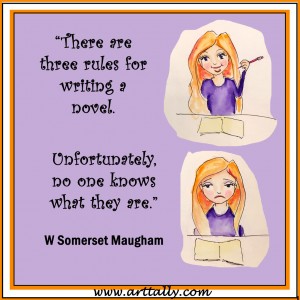 It is amazing how many resources you can find on how to write a novel. Writers are a generous community. Unfortunately, no two writers are alike. As Diana Gabaldon pointed out in her pep talk, we all work a little differently. This means that only you can figure out what works for you. On the plus side - if the goal is to do it your way, you can't possibly get it wrong.
It is amazing how many resources you can find on how to write a novel. Writers are a generous community. Unfortunately, no two writers are alike. As Diana Gabaldon pointed out in her pep talk, we all work a little differently. This means that only you can figure out what works for you. On the plus side - if the goal is to do it your way, you can't possibly get it wrong.
How comforting to know that blundering along however you can is just what you are supposed to be doing.
"There are three rules for writing a novel. Unfortunately, no one knows what they are." W Somerset Maugham.
Are you hunting down some inspiration?
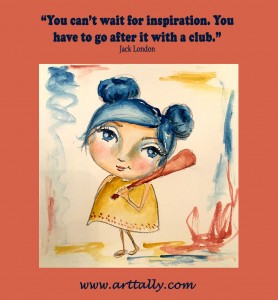 I would love to be showering you with a whole lot of motivating words, but right now I am off hunting down some inspiration for the next 1667 words of my novel. Never fear though....if you are also in search of writing inspiration I do have some useful tips to share.
I would love to be showering you with a whole lot of motivating words, but right now I am off hunting down some inspiration for the next 1667 words of my novel. Never fear though....if you are also in search of writing inspiration I do have some useful tips to share.
However, if you are joining in the NaNoWriMo challenge then you don't have time for all that! My advice is to follow the butt-in-seat-hands-on-keyboard approach. Only 21 days to go!
Reasons for writing - what is your writing why?
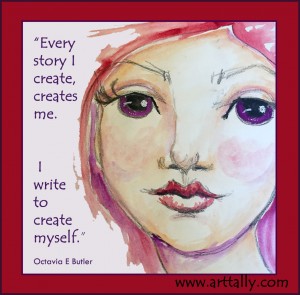 One of the things that has always fascinated me is the question of what makes a writer write. Something everyone seems to agree on is that writing is good for you. But no one seems to have explained their reasons for writing 'why' more intriguingly than Octavia E Butler:
One of the things that has always fascinated me is the question of what makes a writer write. Something everyone seems to agree on is that writing is good for you. But no one seems to have explained their reasons for writing 'why' more intriguingly than Octavia E Butler:
"Every story I create, creates me. I write to create myself."
Does writing cause schizophrenia?
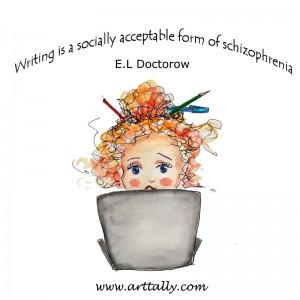 I have been finding it rather delightful being the puppeteer for a set of characters in my story as I might have mentioned before. However, I usually have enough trouble remembering where I need to be and when, not to mention keeping track of what my children are supposed to be doing. Being in charge of every move and breath of a whole lot of other people is exhausting. Hard to believe I'm only 5 days in to my NaNoWriMo challenge - I already feel like these people have always been part of my family.
I have been finding it rather delightful being the puppeteer for a set of characters in my story as I might have mentioned before. However, I usually have enough trouble remembering where I need to be and when, not to mention keeping track of what my children are supposed to be doing. Being in charge of every move and breath of a whole lot of other people is exhausting. Hard to believe I'm only 5 days in to my NaNoWriMo challenge - I already feel like these people have always been part of my family.
It leaves me wondering... does writing cause schizophrenia or is it in fact a job requirement for the aspiring novelist?
"Writing is a socially acceptable form of schizophrenia" E L Doctorow
Just start - the muse will be along shortly
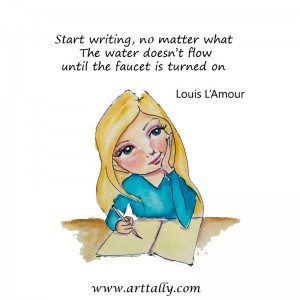 Sometimes the best way to begin is just to start. Too much priming, preparation and research can be immobilising. It opens the door to the inner critic before you have even made your first move. Whether it is a writer facing a blank page or a painter in front of a blank canvas the feeling is the same.
Sometimes the best way to begin is just to start. Too much priming, preparation and research can be immobilising. It opens the door to the inner critic before you have even made your first move. Whether it is a writer facing a blank page or a painter in front of a blank canvas the feeling is the same.
What if it turns out to be terrible?
What if I can't think of anything?
What if I don't do my idea justice?
What if I am actually no good at this?
You have to give yourself permission to try - and give your creative product the chance to be however it is going to be. Good, bad or otherwise. But as Louis L'Amour tells us, nothing happens unless you open that faucet. Don't be waiting to be 'ready'. That may never happen.
Don't wait around for inspiration. You have to get going, the muse will follow. Elizabeth Gilbert has a heart felt TED talk on this - check it out here.
Whatever it is that you are planning to do... go ahead - just start! You will never find out until you begin.
Does everyone have a novel in them?
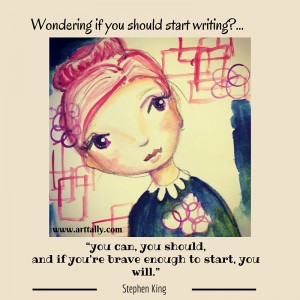 Yesterday I began my Nanowrimo 2015 challenge of writing 1667 words every day. I have to say it was a blast. That's something of a relief because I obviously have 29 more days to go.
Yesterday I began my Nanowrimo 2015 challenge of writing 1667 words every day. I have to say it was a blast. That's something of a relief because I obviously have 29 more days to go.
It was more fun than I anticipated. I have had these characters swimming about fuzzily in my head for the last few weeks. I have felt a fair bit of concern about what I would do with them when I finally started writing. Now I can happily report (yes, I know... its only day one!) that it is tremendously fun being the puppet master moving them about, controlling their every word and breath and relationship. Such power! You have to try it.
I met a lady at a local writers group who said she is always writing stories which contain versions of the people around her. She dealt with her marital breakup by throwing a fictional representation of her husband into a science fiction tale and wreaking merciless havoc upon him. I totally get it now. And that chap she had a set to with in the car park over a parking space? Met his doom in the chapter she wrote that night, of course.
They say everyone has a novel in them. For a long time I wondered if that was indeed true and worried that if I actually tried I might discover the answer to the question if I gave it a try. And not the answer I hoped for.
More optimistically though, there are those who say we do not have a novel in us. We actually have many many novels in us. Story telling is a natural thing all humans do. Sure some are better than others, but every one of us has recounted a past event or experience. Every one of us has already told many a tale. The rest is deliberate practice.
I can't think of a more encouraging way to start than with hundreds of thousands of other people all over the world this November.
Whether for fun, catharsis or the simple joy of tap, tap, tapping away at a keyboard , you might want to give writing a try. As Stephen King says,
You can, you should, and if you are brave enough to start, you will.
A new adventure called Nanowrimo
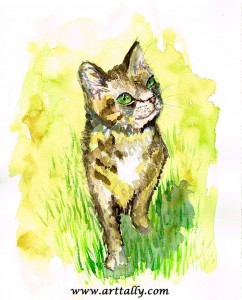 Cat no 10 in my watercolour cat series for this month is a happy little chap out exploring the world.
Cat no 10 in my watercolour cat series for this month is a happy little chap out exploring the world.
I can relate - I am exploring too. In fact I'm off on a bit of an exciting adventure next month. I say next month in a casual sort of way, but I realise that is only a week or two away. And I say 'off' like I am going somewhere but there is no travelling required. I decided to sign up for Nanowrimo. Have you heard of it?
Nanowrimo is the National Novel Writing Month. It happens every November and it is totally free to join. The deal is that you sign up to the website and then commit to writing 1667 words every day for the month of November. If you manage that, you have a 50 000 word draft of a novel by 1 December. Now doesn't that sound fun?
I always wanted to write some sort of fiction but I worried because I never managed to get a working plot idea. In fact, that is exactly how I found Nanowrimo in the first place. My solution to everything is to do a bit of research (hazard of my former occupation). My research led me to a book written by the founder of Nanowrimo, called No Plot? No Problem!
The author, Chris Baty, describes it as a "low-stress, high-velocity guide to writing a novel in 30 days".
Low-stress, Chris?... hmm... we will see.
Worst case scenario I will just be doing extra drawing and painting to calm myself I suppose. I have already had to do a bit of that, since I only have Chris's word so far, that embarking on novel writing without a plan is not a problem. Feels like flying blind to be honest, however to me, that still seems preferable to tediously cranking out a plot beforehand. Frankly, I feel quite relieved that someone has give me permission to attempt it.
I'm mad for a creative challenge (as you may have already gathered) and this one definitely has my name written all over it. How about you? Will you join me?
Go on... you know you want to. Chris's book might tempt you - it is very encouraging...

